When behavior biologist Charlotte Kluza first volunteered with the Phoenix Landing Foundation, a Washington D.C. metro-based parrot rescue organization, she expected they would need to re-home forty to fifty parrots a year. "It was more like 115 to 150," she recalls. "I had no idea of the scope of the problem."
Watch Millie, a clicker-trained military macaw, courtesy of Phoenix Landing
Phoenix Landing, an all-volunteer, nonprofit organization, was founded in 2000 by Ann Brooks to promote and protect the welfare of parrots, especially those with potential lifespans of 40 to 60 years. They have placed more than 250 parrots with new homes and manage a network of 80 foster homes for parrots awaiting adoption. Phoenix Landing's commitment to the welfare of parrots, however, goes far beyond locating adoptive homes for rescued and abandoned parrots.
"We're always thinking about the enormity of the problem," says Kluza, "and how to get ahead of it." Preventing the behavior problems—screaming, biting, and feather picking among them—that lead to the need for re-homing and adoption has become an equal focus for the organization. Many newcomers to life with a parrot don't realize how intelligent these birds are and, consequently, how much mental stimulation they require to prevent boredom, a primary cause of behavioral problems. "People don't do their homework first," says Kluza. "They may buy a bird on impulse and have no idea just how loud a cockatoo can scream. After five years, the screaming gets really old. Or, they don't realize how long a parrot can live. The owners' lives may change—they may get married, or have children, or move—and that parrot is still going to be around, and may not adjust well to the changes in their life."
To educate owners about meeting the needs of these intelligent, sociable animals, Phoenix Landing has developed workshops, a lecture series, and classes for prospective, new, and experienced parrot owners in their region. "New dog owners are strongly advised to attend training classes and learn about the behavior and needs of their pet," points out Kluza. "Dogs, after all, are going to live with them for 10 to 15 years, and can develop serious behavior problems if their social, mental, and health needs are not met. However, parrots can live with their owners for 50 years or more, and have many complicated requirements for good health. Yet classes for companion parrots are a rarity."
Read and use: Getting Started: Clickertraining for Birds, by Melinda Johnson. Available as a book and as a kit (includes book two i-Clicks, CD of wonderful clicker birds, quick start guide, and target stick).
Phoenix Landing offers classes (and requires that adopters attend at least one) in avian care—including nutrition, health care, toys, and housing. The classes also provide information about parrot behavior in the wild to help people understand parrot behavior in the home.
Phoenix Landing's workshops focus on behavior modification, and how the art and science of clicker training can both prevent and solve problems.
"With clicker training, a bird can learn what we want it to do, rather than just what we don't want it to do. In the long term, it will be better adjusted and have a better chance of keeping its home," says Kluza. "We strongly encourage new owners to read Melinda Johnson's book, Getting Started: Clicker Training for Birds (KPCT, 2002). It is so clear, and gives people the exact steps they need to train a behavior or solve a problem. They read it, try the training, find out that it's easy, and that they're successful." Kluza also encourages foster homes to clicker train the birds they care for in preparation for permanent placement. "I ask them to start with target training, which is a great technique for a bird that bites or won't let you touch her."
Kluza has provided two videos of bird training in action. They are both of Millie, a military macaw. "Millie came to stay with me because her owner had to have surgery," explains Kluza. "The owner has four other parrots her adult children were willing to care for; however, they wanted nothing to do with Millie because of her biting and screaming.
The day Millie arrived I clicker trained her to wave, and touch the target. Within the first two days, her biting stopped and her screaming decreased—we also did some replacement behaviors for screaming. I think it was establishing a positive relationship with her using clicker training that made the difference. Millie learned behaviors that were acceptable, and discovered interacting with people was both fun and rewarding. So, while the tricks are not so impressive, they difference learning those tricks made for Millie is very impressive."
Phoenix Landing is also an active and effective advocate for parrots in the wild. They support the World Parrot Refuge, currently under design on several hundred acres of rain forest in Costa Rica, and Project Bird Watch, an all-volunteer group working to conserve endangered cockatoos and parrots indigenous to Indonesia. In the United States, Phoenix Landing is working to build a large indoor and outdoor free-flight aviary in North Carolina, opening in the fall of 2005.
Donations in support of all these endeavors can be made through the Phoenix Landing website, www.phoenixlanding.org. All donations to Phoenix Landing will also support efforts to sponsor research of wild parrot behaviors and habitats, medical research specific to parrots, and improved avian vet education.
For more information about adopting parrots and avian behavior, visit www.phoenixlanding.org.
| Attachment | Size |
|---|---|
| millie_targetting.wmv | 2.48 MB |
| millie_waving.wmv | 943.29 KB |

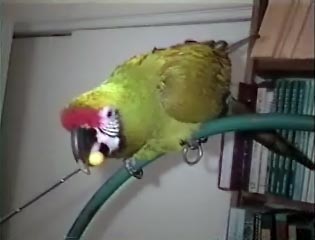
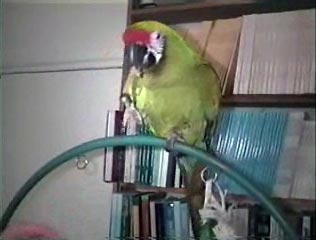

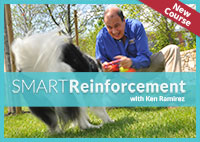

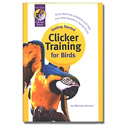

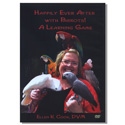

Post new comment